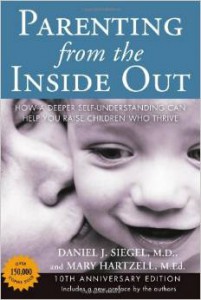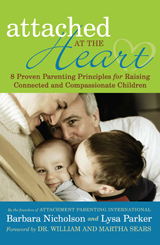By Shoshana Hayman, director of Life Center, The Israel Center for Attachment Parenting, www.lifecenter.org.il
I love summer vacation. I remember picnics at the beach and playing in the sand. On very hot days my older sister and I would run through the sprinklers and make up our own original games. During the long summer evenings my father would play ball with us, and we’d all enjoy family dinners outside on the porch after nightfall when the heat of the day finally gave way to cool breezes. My granddaughter just told me that she has already begun to count the days when school is over. Like most children, she can’t wait for summer vacation to begin.
But what is it like for parents? The approach of summer vacation is mixed with feelings of worry about how to fill the long hours, what to do about the constant complaint that “there’s nothing to do,” how to handle the endless bickering and fighting between siblings, and how to find adequate supervision for children while parents are working outside the home.
Since the most important influence on a child’s development is parental love and healthy parent-child interaction, summer vacation is an opportunity to make sure that children have large doses of loving connections with the adults who love them. During the summer, children are free from the pressure of structured schedules, homework and extra lessons, and parents can seize this as an opportunity to create stronger attachments with their children and provide them with the kind of rest that frees a child’s vitality and creativity. Children also need freedom from the pressure of being in large groups with so many other children. Summer vacation is an ideal time to give them a large dose of attachment to home base and limit separation from home and loved ones. This allows the child’s sympathetic nervous system to come to rest, and the processes that lead to calm and creative endeavor can be restored.
It is frustrating to face the fact that our modern culture does not support the health and welfare of parents and children, and as a result, it has become more difficult to be with our children and help them grow up. Still, we have to move from thinking that children need to fit in with the needs of adults and instead think in terms of how to take care of children’s developmental needs, our primary responsibility. We need to ask ourselves a lot of questions.
-
If I need child care during the summer, is there a grandparent or other relative who can be with my children?
-
Is there a summer camp with groups small enough so that the counselors will interact with my child in a warm and caring way?
-
What kind of activities can I plan with my children that will give us opportunities to talk, laugh and enjoy being together? Examples may include cooking and baking together, arts and crafts projects, making decorations for the house, putting together family history and photo albums, making gifts for other family members, playing outside together, board games, becoming involved in the child’s interests, etc.
-
How can I turn mealtime into a festive family occasion?
-
When I’m at work and not with my child, how can I give him a sense of connection with me?
The primary answer we are looking for is how to create deeper attachment—deeper feelings of closeness, sameness, belonging, significance, love and being known.
When parents are empowered with the understanding of the significance of their role in their children’s lives, they can look forward to summer with more confidence and enthusiasm. The more parents find within themselves how they can be the answer to their children’s need for love, frequent loving interactions and deeper attachment, the more they can enjoy each day with their children. Parents will come up with their own unique answers that are most appropriate for their own families, so that they can be the parents their children need. Summer vacation has the potential to become a haven of nurturing, love and new growth for parents and children together.
You can also read Keeping a Schedule When There is No Schedule for some ideas about managing the endless free hours of summer.
 We will be ending our discussion of Attached at the Heart (2nd edition) by Barbara Nicholson and Lysa Parker. The topics we’ll be discussing in August will be :
We will be ending our discussion of Attached at the Heart (2nd edition) by Barbara Nicholson and Lysa Parker. The topics we’ll be discussing in August will be :







